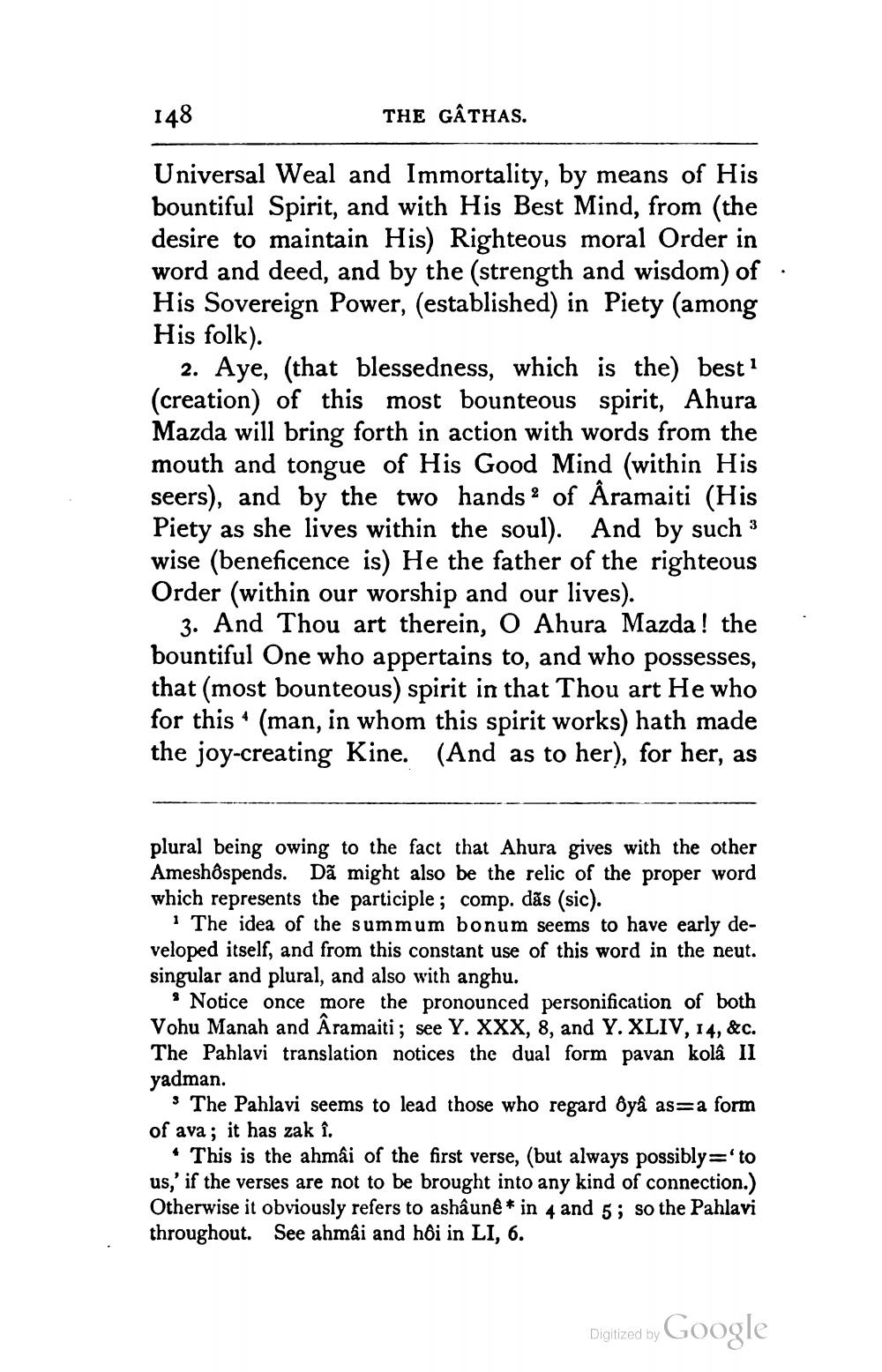________________
148
THE GÂTHAS.
Universal Weal and Immortality, by means of His bountiful Spirit, and with His Best Mind, from the desire to maintain His) Righteous moral Order in word and deed, and by the (strength and wisdom) of · His Sovereign Power, (established) in Piety (among His folk).
2. Aye, (that blessedness, which is the) best 1 (creation of this most bounteous spirit, Ahura Mazda will bring forth in action with words from the mouth and tongue of His Good Mind (within His seers), and by the two hands 2 of Aramaiti (His Piety as she lives within the soul). And by such 3 wise (beneficence is) He the father of the righteous Order (within our worship and our lives).
3. And Thou art therein, O Ahura Mazda! the bountiful One who appertains to, and who possesses, that (most bounteous) spirit in that Thou art He who for this * (man, in whom this spirit works) hath made the joy-creating Kine. (And as to her), for her, as
plural being owing to the fact that Ahura gives with the other Ameshộspends. Dã might also be the relic of the proper word which represents the participle; comp. dãs (sic).
1 The idea of the summum bonum seems to have early developed itself, and from this constant use of this word in the neut. singular and plural, and also with anghu.
Notice once more the pronounced personification of both Vohu Manah and Aramaiti; see Y. XXX, 8, and Y. XLIV, 14, &c. The Pahlavi translation notices the dual form pavan kola II yadman.
· The Pahlavi seems to lead those who regard öyâ as a form of ava; it has zak î.
. This is the ahmâi of the first verse, (but always possibly='to us,' if the verses are not to be brought into any kind of connection.) Otherwise it obviously refers to ashâune * in 4 and 5; so the Pahlavi throughout. See ahmâi and hôi in LI, 6.
Digitized by
Digitized by Google




